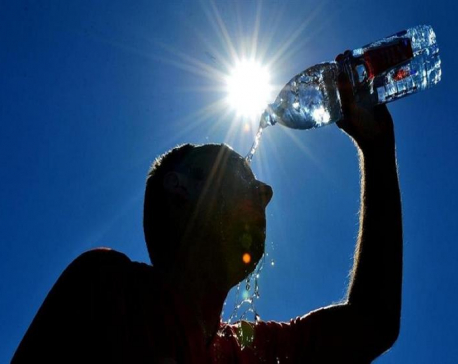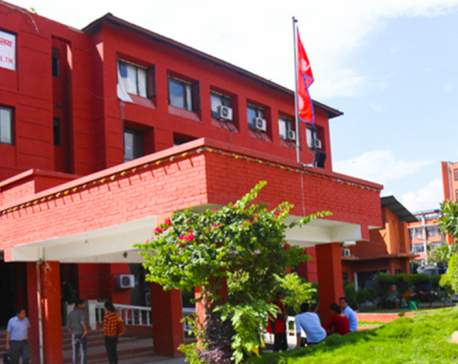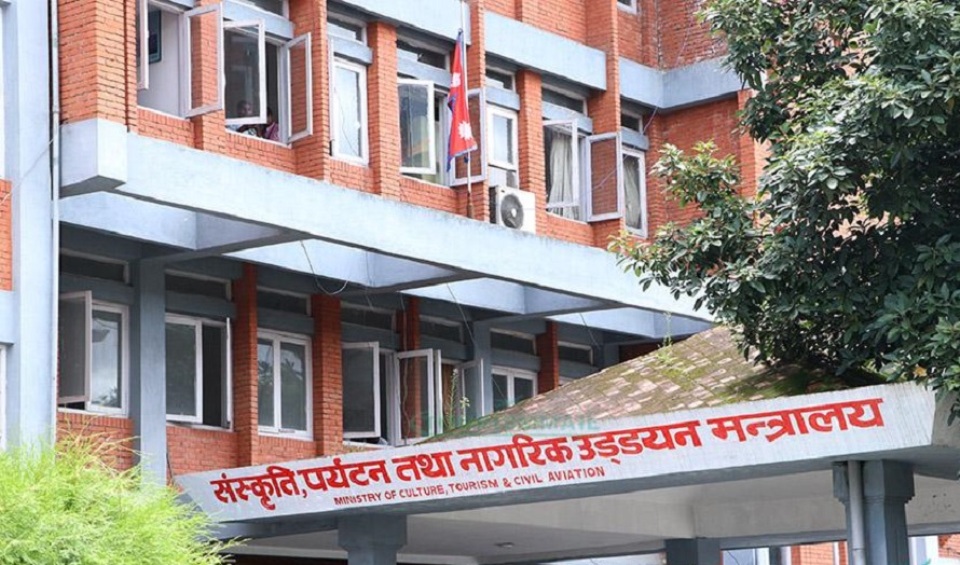
OR
Post-flood diseases.
As of this writing, 80 people have been confirmed dead from the recent floods in Tarai-Madhes. Even though rainfalls in many places have abated, they have not completely stopped, thus adding to the complication of immediate rescue and relief efforts. Telephone lines and signal towers have snapped, and many villages remain out of contact. Nor do many of them have access to electricity or drinking water. As there is no clean water to drink, around 31,000 families that have been displaced by the floods are at an imminent risk of contracting communicable water-borne diseases like cholera, typhoid and dysentery and even more dangerous Hepatitis A and Hepatitis E, both of which can lead to severe liver complications and even death. Flood victims’ access to clean water is thus important. If clean water is not available, the next best thing is adding chlorine tablets to water, which kills many kinds of germs instantly. Chlorine tablets can be particularly handy in post-disaster situations when victims might not have access to other water-purification methods. The Ministry of Health has assured that there are enough chlorine tablets for all quake victims.
More than that, government agencies will need to closely coordinate with private sector actors, NGOs and political parties to set up temporary shelters for flood victims. At a minimum, such shelters should protect these families from incessant rains and arrange for their daily meals. Since it may not always be possible to cook in there, as a stopgap measure, packaged food can be a vital source of nutrition. Again, arranging for all this will call for a massive level of coordination among all those involved in rescue and relief operations. Since big political parties like Nepali Congress, CPN-UML and CPN (Maoist Center) each have massive nationwide networks, they must instruct all their cadres to be involved in relief efforts. If local level units of political parties and locally-based security agencies can work together, they will be able to save many lives, even without the help of other actors. As water level recedes, things will get much easier for them, and they will in turn be able to help more people. It will not be easy, but in a society that has long been characterized by mutual cooperation and harmony, it should not be that hard either.
In the next few days, infectious diseases rather than surging water levels will be the main treat to the lives of flood victims. This is why it is important to deploy adequate number of medical doctors and epidemiologists to hard-hit areas. There is not a moment to lose. If there is an epidemic of a dangerous disease like cholera, it is sure to claim many lives, and it will be difficult to control. Likewise, these areas must also be fumigated against mosquitoes to ward off malaria and dengue. Another crucial test of the government will be its ability to channel the national disaster relief fund it has set up, and to which people from all walks of life are contributing, to the right areas and on time. We hope that Prime Minister Sher Bahadur Deuba, as the chief coordinator of these efforts, is up to it.
You May Like This

DoHM cautions of heat wave in West Terai and Madhesh regions for next five days
KATHMANDU, April 23: The government has cautioned the denizens of West Terai and Madhesh regions to take precaution from hot... Read More...

Health Ministry urges people to avoid travel abroad unless absolutely necessary
KATHMANDU, Dec 1: The Ministry of Health and Population (MoHP) has urged all people not to make foreign visits unless... Read More...

Priceless herbals being exported at Rs 20 per kg
KATHMANDU, June 22: In lack of processing centers and sluggish technological development, precious herbs are being exported for mere Rs.... Read More...









Just In
- Govt amends nine laws through ordinance to attract investors
- NRM to announce two citizen heroes today
- Federal capital Kathmandu adorned before Qatar Emir's State visit to Nepal
- Public transport to operate during Qatari king’s arrival, TIA to be closed for about half an hour
- One arrested from Jhapa in possession of 43.15 grams of brown sugar
- EC to tighten security arrangements for by-elections
- Gold price drops by Rs 2,700 per tola
- Seven houses destroyed in fire, property worth Rs 5.4 million gutted







Leave A Comment